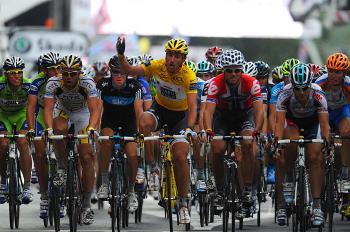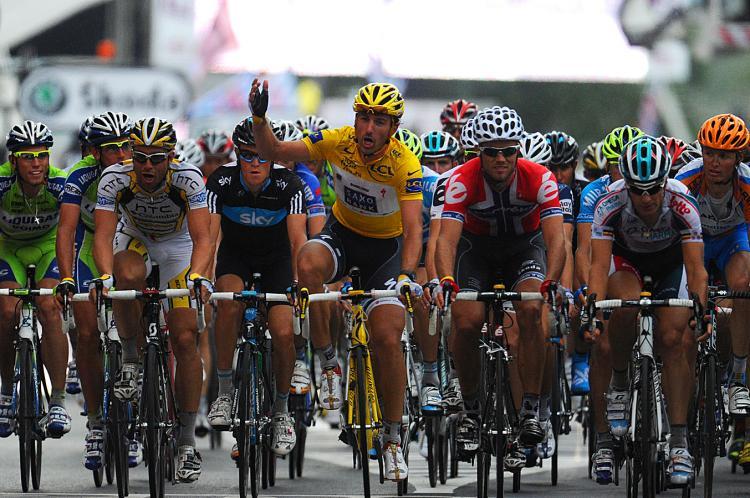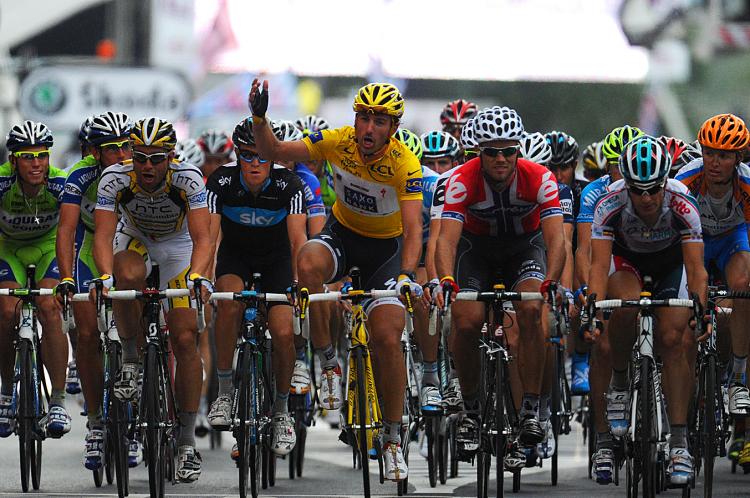After a wave of crashes felled half the peloton on wet and possibly oily roads during Stage Two of the Tour de France, Tour leader Saxo Bank rider Fabian Cancellara convinced the rest of the riders not to race to the end, though it cost him his yellow jersey.
“There’s other things to think about than the yellow jersey,” said Cancellara on cyclingnews.com. “You are also responsible for also trying to look at… There was a whole bunch on the ground .... and try to get everybody back get to the finish. When the whole bunch is on the ground it’s better to stay together and go all the way to the finish together.”
The decision is proving to be controversial; many see it as fairness to the riders who crashed, while others say that in a bike race crashes happen, but the racing must go on.
The road where the crash occurred is part of the regular Liège–Bastogne–Liège Cycling Classic; many of the riders who crashed have ridden the route in the past. The route can be ridden and raced safely; it has been hundreds of times.
If there was indeed oil on the road, then certainly the moratorium on racing was a fair decision; it was not the fault of the fallen riders that they crashed.
What Riders Said
Defending champion Alberto Contador of Astana tried to explain why the peloton decided not to race, in an interview on cyclingnews.com.
“It was a really crazy stage. On this road it was impossible not to fall. I fell on a straight part at about 60 km/h. I saw at every turn there were people on the ground, it was impossible to go without falling.
“As soon as I heard that Andy [Saxo Bank rider Andy Schleck] was behind I ordered all my teammates to stop. As I wished he'd do with me, I had to do with him.
“[There was disagreement] with some teams who wanted to go ahead in spite of everything, because there were many dangerous riders in front too. In the end they acted with logic and decided to stop in front too.”
BMC riders Cadel Evans, George Hincapie, and Mauro Santambrogio all went down, as did teammates Marcus Burghardt, Steve Morabito, but none were more than scraped and bruised.
Evans told cyclingnews.com, “It was a straight road—downhill—with oil or whatever on it and the whole peloton went down. Sorry to the public for not racing. But it would not have been fair to the many who were injured.”
Linus Gerdemann of Milram told cyclingnews.com, “That wasn’t a strike. With this action we wanted to show our solidarity with the many crash victims.”
Not all riders were happy with the decision not to race.
Cervelo sprinter Thor Hushovd, who was one of the top picks to win the stage, told dailypeloton.com, “I feel frustrated by what happened today. Our team was working hard and we would have had a good chance for victory. I feel like they have taken something away from us today.”






